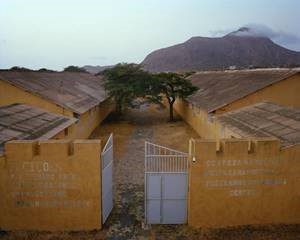
Through the Lens of Memory: Photo Topographies of a Concentration Camp
João Pina, photographer
April 17, 2024 · 4:30 pm—6:00 pm · 209 Scheide Caldwell
Brazil LAB; Department of Spanish & Portuguese; Program in African Studies

Please join us for a conversation with photographer João Pina, who will discuss his latest book project: Tarrafal.
In 1936 in the small village of Tarrafal in Cape Verde what was then a Portuguese colony of the coast of West Africa, a concentration camp was built by direct order of the Portuguese dictator Antonio Oliveira Salazar, to send political prisoners into what became known as the camp of slow death. Earlier that year, Salazar had sent a government official to Germany to visit and learn from Hitler’s regime on how camps were being built.
In 1949, Pina’s grandfather Guilherme da Costa Carvalho, a young communist militant, was sent to the camp. Later that year Guilherme’s parents were granted special permission to visit their son and photographed all the living prisoners and the graves of the ones who died in the camp.
Now, more than 70 years later, Pina is not only recovering his own family archive and other historical archives that show the camp in that era. He has been producing his own photographic work, both documenting his travels to what is left of the camp in Cape Verde but also speaking to former African political prisoners, has made him research, interview and record the stories of both periods of both anti-fascist and anti-colonial struggles.
João Pina is a freelance photographer born in Portugal in 1980. His photographs have been published in D Magazine, Days Japan, El Pais, Expresso, GEO, La Vanguardia, New York Times, New Yorker, Newsweek, Stern, Time, and Visão, among others.















